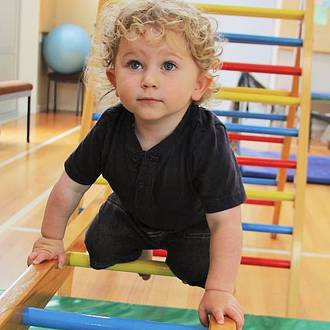Shop
01663
https://www.under5s.co.nz/shop/Hot+Topics+Articles/Child+Development/Nurturing+resilience+in+young+children.html
Nurturing resilience in young children
|
In nurturing resilience in our children, it’s important to find a balance between the ‘bubble wrapping’ practices of a ‘helicopter’, over-protective and controlling parent on the one hand, and the laissez faire, under-supervised parenting practices on the other.
|
You might also be interested in ...
The effects of W-sitting
We take a look at the effects of W-Sitting, why it’s not ideal and the postural and developmental issues it may cause young kids.
Healthy body, healthy mind
Find out how physical play and development are linked to reading and writing skills. The brain plays its part in children’s writing and reading but the body needs to be ready physically too. Little hands and eyes need developing ready for successful reading and writing.
join usJoin us on social media for all our latest news. |
sign upSign up and receive our latest newsletters. |
|







Children have a deep-rooted psychological need for risk taking and responsibility seeking that underlies the maturing process.
It’s often felt that children who push the limits (and scare us adults in the process) may also be those who are the ones most ready for life.
Nurturing resilience in young children
So how do you nurture resilience in young children?
How do we as parents keep our children out of harm’s way, while still offering them what they need to experience the thrills that are part of growing up?
Sometimes as parents we delude ourselves into thinking we’re the ones doing the ‘bringing up’, but we have to admit we don’t always know best.
Parenting is not an exact science and families are too diverse for there ever to be one recipe for success.
What works towards helping to build resilience in one child, could be disastrous for another. So, ignore the experts and trust yourself first.
The road to success lies in our own self-knowledge, flexibility and the courage to really listen to and understand our children in order to encourage the self-expression needed to help them find their talent, passion and uniqueness.
Often this means suspending our expectations and allowing our children to lead.
Children will do whatever they need to do to convince themselves of the three ‘C’s - competent, capable contributors to their communities.
What a well-intentioned adult says to a child will often be helpful, but sometimes our own fears and limitations get in the way of enabling our children to find ways of being powerful.
Our children need the same kind of challenges we had as kids, but they also need the support of caring adults who can help them cope.
Our children are begging us for opportunities to prove themselves.
We should all listen to our children and communicate in ways that they can understand what we mean.
Through engaging in respectful conversations and meaningful experiences with our children, our role as parents is to coach them to take safe risks and to develop responsibility.
In the long term, this will help facilitate their transition to adulthood and understanding of these four powerful messages – that they belong, are trustworthy, responsible and capable – the core to developing resilience.
More kids articles to enjoy:
Article source: Jumping Beans - Fun, child-centered, physical activity and movement to music classes for babies and pre-schoolers ages 6 weeks to 6 years.